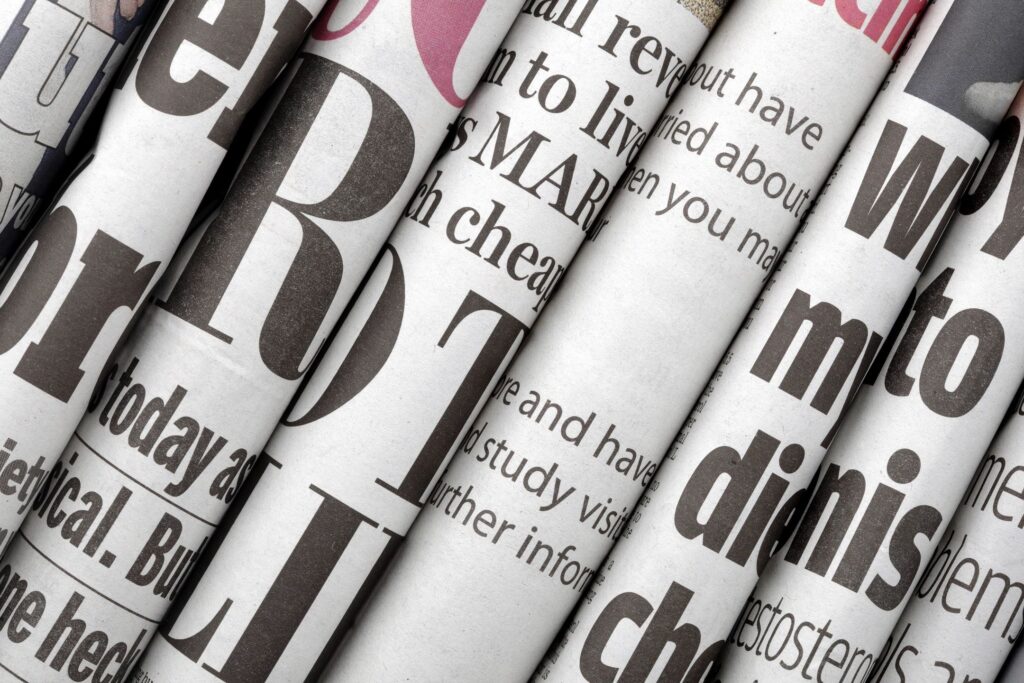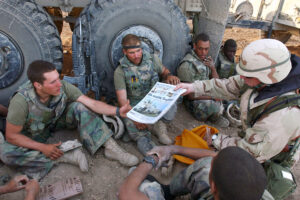
I figure it was around 1994 when the working press I had grown up with started colliding with the media.
I was the sports editor at the Lewiston Sun-Journal in Central Maine. The paper was a solid, family-owned daily that poured its heart and limited resources into giving their working-class readers the news they could use. Circulation was 50,000 give or take, and we were pushing four editions off the printing press each day.
Newspapers were on their way to dying, but nobody dared to admit that out loud. Something called the World Wide Web had announced its intentions to eat us, but there were stories to break and deadlines to hit, so we did a better-than-average job of not only ignoring the World Wide Web, but never even doing a single story about it that I remember.
Back then, cable TV was in its glory days, and starting to bury people with news, or stuff resembling it, 24 hours a day.
One day, the Executive Editor of the Sun-Journal waved me into his office. I sat down, and in his nervous, roundabout way he explained to me that the publisher was worried the paper was in trouble and needed to increase our visibility and revenue streams pronto.
Short of doing more and better stories with less staff, I wasn’t sure how I could help.
That’s when he said he wanted me to consider partnering with the local ABC-TV affiliate on a sports show. We could also share stories to lessen the news-gathering burden. I blinked hard a couple of times, before I laughed.
Look, one thing all print journalists positively hated back then were the look-at-me folks on TV with the $300 haircuts, who spit out all manner of bullshit though those bright white teeth of theirs.
They weren’t doing news, they were reading low-level schtick. Worse, any news they were actually doing, was stolen from the newspaper.
So I said, “No.”
He said, “Well somebody on your staff is doing it, and I’ve decided that somebody is you.”
So I said, “Yes, sir.”
A few weeks later, I met with the brass at the TV station.
It was February in Maine and everybody on the TV side of the table had these weird, orangey tans. They talked a lot at us while we listened, and then they decided on a name: “Sports Rap LIVE!”
I’d cohost the 40-minute show on Sunday nights with their sports anchor, Norm.
Norm, a truly nice guy, said he’d walk me around the joint and introduce me to some of the talent. Here’s what I remember seeing: Lots of orangey people sitting in their offices, getting their hair tousled, their nails painted and their outfits cleaned of lint.
I never did see a newsroom, but I learned right then and there that was the entire point of it: It was all a show!!
I guess the ratings for our little show were good enough to sell stuff, but I mostly remember TV shows like that one marked the beginning of the end of journalism as we knew it.
Print had not only collided with the rest of the media, it had gotten irretrievably tangled up in it.
If you’ve watched any of the cable news shows these days — you have, because they’re impossible to avoid — the toothy hosts haul one print journalist after another onto their shows. They are almost exclusively from The Washington Post or The New York Times. What hasn’t changed since my introductory perversion onto these forums 25 years ago, is that the print folks are still breaking most of the news and the TV folks are still getting most of the attention for it.
What has changed, is the print folks are so much better in front of a camera than I ever was. It’s become performative journalism. I suppose it’s a necessary evil, but nobody is any better for it except for the bean counters.
And if this was as far as it all went, we would have probably somehow survived it. But lately the journalist’s book has showed up on the scene.
It seems like all the celebrity print journalists are writing ’em these days. While Trump was rotten for truth, justice and the American way, he’s been great for all these books. Yes, books. Real irony there, given the guy’s never read one.
There are two different types of political books. The book that’s written to describe the mayhem and/or context behind a significant news event, or the scope of one’s beat is one type. The book that is written to break news is quite another.
The latter book is shoddy. That book is most definitely not journalism. That book is dangerous as hell.
In the past couple of days, The New York Times reporter Maggie Haberman has been getting a significant amount of guff for sitting on news she uncovered while working for the paper in her capacity covering Trump.
Essentially, Haberman used her access to gather who knows what out of the White House, and is now leaking some of that information in a steady stream to drum up interest for her book. Trouble is, if this information is true, it should have been reported the minute she got it — book, or no book. That’s what journalists do.
It’s called “news” not “old” for a reason.
Haberman is not the first one to do this, of course, but all of us need to push hard to make sure she is the last. We can start by not buying her damn book. Bad behavior shouldn’t be rewarded.
And as hard as we should be on the Habermans of the world concerning all these books, it’s her bosses at The New York Times who should get 99 percent of the blame for allowing and even encouraging this breathtaking bullshit. They are taking our money, to sit on the news.
Shortly after my sports editing and TV show days, I made the jump to the news side of the business. Not long after that, I took the job as Managing Editor at Stars and Stripes, the legendary editorially independent newspaper that serves the troops and their families overseas.
At Stripes, I was privileged to work for the smartest person I ever met in the news business.
His name was Dave Mazzarella. Dave had a resume three editions long, and most notably edited a little paper called USA Today, before retiring.
Bored with retirement, I suppose, and missing the thrill of deadline, Dave took the job as ombudsman at Stripes. When that wasn’t enough to fill his sails, he was named Executive Editor at the paper, thus becoming my direct supervisor.
Dave said more smart things about the news business in a week than I have ever said in my lifetime.
One thing he said — more like grumbled — was that The Washington Post and The New York Times were reporters’ papers. In other words, “big shot” reporters too often called the shots at these papers, and not newsroom management. This is a little like an infantrymen ranging freely on the field of battle without command’s permission.
The second thing Dave said was, and he said this a lot, “EVERYTHING we do is for the readers. Any decision we make about anything in this newsroom MUST BENEFIT THE READERS!”
Truer words were never spoken.
So, I ask this of these book-writers: If you are sitting on major news now to stuff in some book later, who are you really benefiting? The readers, or yourself?
(D. Earl Stephens is a published author and finished up a 30-year career in journalism as the Managing Editor of Stars and Stripes. You can also find his stuff on Substack.)



